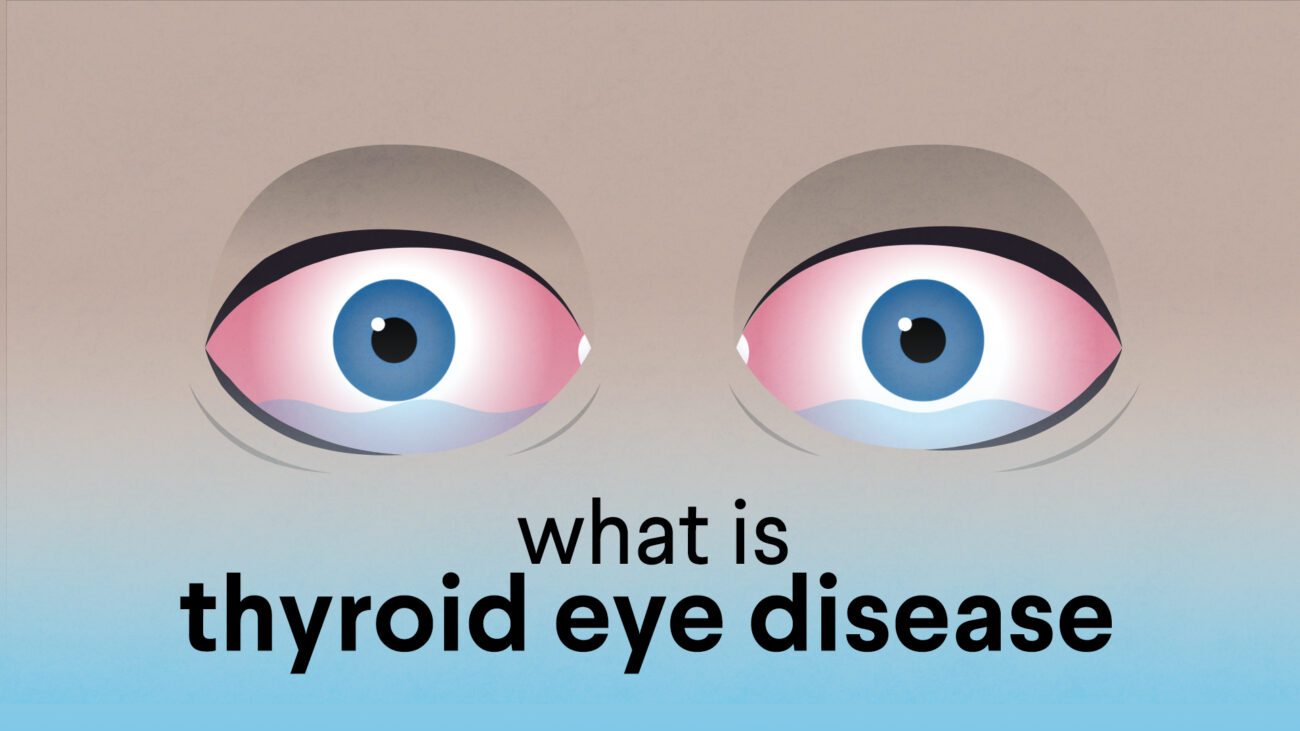Fuse Infusion Offers Biological Therapy Treatment for Thyroid Eye Disease.
There are various rare diseases that have been diagnosed until now, and thyroid eye disease is one of them. This disease is rare, resulting from progressive damage and inflammation of tissues surrounding the eyes. This particularly damages the connective, fatty, and extraocular muscle tissues.
There are various causes that are primarily associated with thyroid eye disease. Moreover, when you have a thyroid eye disease, then its symptoms are nearly similar to the Grave’s disease. Grave’s disease is an autoimmune disorder.
Now, if you are diagnosed with thyroid eye disease, don’t worry, as Fuse Infusion is here to help you in overcoming this chronic autoimmune disease through specialized genetically engineered biologics.
What Is Thyroid Eye Disease?
Thyroid eye disease is the swelling and damage to the structures surrounding the eyes. These structures include muscles, connective and fatty tissues. TED is an autoimmune disorder, meaning it develops as a result of your body being attacked by your immune system.
The active or inflammatory phase and the stable phase are the two stages of TED. The stable period begins when the inflammation subsides, while the active phase can last anywhere from months to three years.
Grave’s diseases and TED are often related to each other. These are both chronic autoimmune diseases. Graves disease affects the eyes, skin, and thyroid.
Graves disease can result in hyperthyroidism, a condition in which your body produces an excessive amount of thyroid hormones. Less frequently, Graves disease can also lead to hypothyroidism, characterized by insufficient hormone production in the body.
Both conditions can lead to thyroid eye illness; however, persons with low thyroid hormone levels who also experience eye puffiness and brow hair loss typically have severe hypothyroidism.
Thyroid eye illness, however, can exist in adults with normal thyroid hormone levels. Due to the harm done to the optic nerve by thyroid disorders, secondary glaucoma can also result.
Frequency of Thyroid Eye Disease
Women and persons assigned female at birth (AFAB) get thyroid eye disease more frequently than men and those assigned males at birth (AMAB). This is because individuals who are AFAB are more likely than AMAB to get hyperthyroidism. The condition affects 16 out of every 100,000 female births and 2.9 out of every 100,000 male births, respectively.
The average age of a TED diagnosis is 43 years old. You may receive a diagnosis sooner or later than 43, though.
Thyroid eye illness may be more likely to affect you if you:
- Have other relatives who suffer from thyroid eye illness.
- Have low blood levels of the mineral selenium.
Radioactive iodine is a treatment for Graves disease or hyperthyroidism. If you don’t additionally receive steroids from your doctor along with the iodine, this treatment could worsen active thyroid eye disease.
How Will Fuse Infusion Support You During Biologic Infusion Therapy?
At Fuse Infusion, we offer biological infusion therapy to patients diagnosed with chronic autoimmune diseases. We offer treatment in a safe and secure setting and ensure our full support during the infusion procedure.
We have highly qualified and expert medical professionals who constantly monitor you for allergies or side effects after receiving biological infusions.
Thyroid Eye Disease – Causes
TED is an autoimmune disease, which means the body’s immune system attacks and resulting in inflammation and scarring. Although it can very infrequently happen in patients with an underactive or regularly functioning thyroid gland, TED is typically linked to an overactive thyroid gland as a result of Graves’ illness.
A thyroid issue may be diagnosed before, during, or after TED develops in about 25% of Graves’ disease patients. TED is also called Graves’ eye disease (GED) or Graves’ orbitopathy (GO).
Symptoms
Following are the thyroid eye disease symptoms and signs:
- Watery eyes
- Dry eyes
- Feeling gritty due to irritated eyes
- Red eyes
- Diplopia (double vision)
- Difficulty is closing eyes completely
- Bulging eyes
- Vision
- Pain in eye movements
- Pain behind eyes
These symptoms can vary from one individual to another. Moreover, they may affect both of your eyes at the same time. However, you may see the symptoms in only one eye.
Thyroid Eye Disease Treatment
Thyrotropin receptor (TSHR) activation caused by an autoimmune process is a characteristic of Graves’ disease (GD), also known as thyroid endocrinopathy. Thyroid receptor antibodies (TRAbs), which imitate TSH and cause hyperthyroidism, stimulate the THSR in thyrocytes.
About 25% of people with GD experience Graves’ orbitopathy, also known as thyroid eye disease (TED), an autoimmune-driven ophthalmic manifestation. According to Lane, Cheetham, Perros, and Pearce, thyroid eye illness is a more complex disease process combining genetic and environmental variables and may occur independently of GD or autoantibodies.
Periorbital edema, erythema, proptosis, eyelid retraction, restrictive strabismus causing diplopia, chemosis, and in more severe cases, increased intraocular pressure, exposure keratopathy, and even optic nerve compression are among the ophthalmic signs of TED. These signs may have significant bodily and psychological effects.
We use various genetically engineered biologics to treat thyroid eye disease through biological infusion therapy at Fuse Infusion. These biologics include:
- Rituximab
- Tocilizumab
- Teprotumumab
- IGF-1R Inhibitors
- FcRn Inhibitors
There are other specialized biologics that are used other than these for treating thyroid eye disease. Well, the development of some new biologics continues to produce more effective biologics.
In particular, inhibiting IGF-1R and FcRn are two of the newest biological targets being studied in thyroid eye disease clinical studies. IL6, CD20, and TNF-alpha are additional possible targets.
With the aim of disease prevention, sign, symptom abatement, and reversal without substantial side effects, ongoing research, and additional studies are required to improve our understanding of and approach to treating thyroid eye disease.
No matter which biologic is used to treat thyroid disease’s ocular symptoms, its side effects on the body must be carefully watched over and managed.
Contact Fuse Infusion for Thyroid Eye Disease Treatment
If your doctor has recommended biological therapy treatment for thyroid eye disease, we at Fuse Infusion offer you the best treatment services. We treat thyroid eye disease through medications, which are specialized biologics, and help our patients in overcoming this chronic disease.
Each Fuse Infusion patient receives direct care and treatment from our licensed professionals throughout biological infusion therapy, providing thorough medical management.
From start to end, each patient receives individualized care. When required, on-call medical professionals are accessible.
At Fuse Infusion, we believe in offering premium-quality services to our patients. So, contact us to receive a biologic infusion today!

